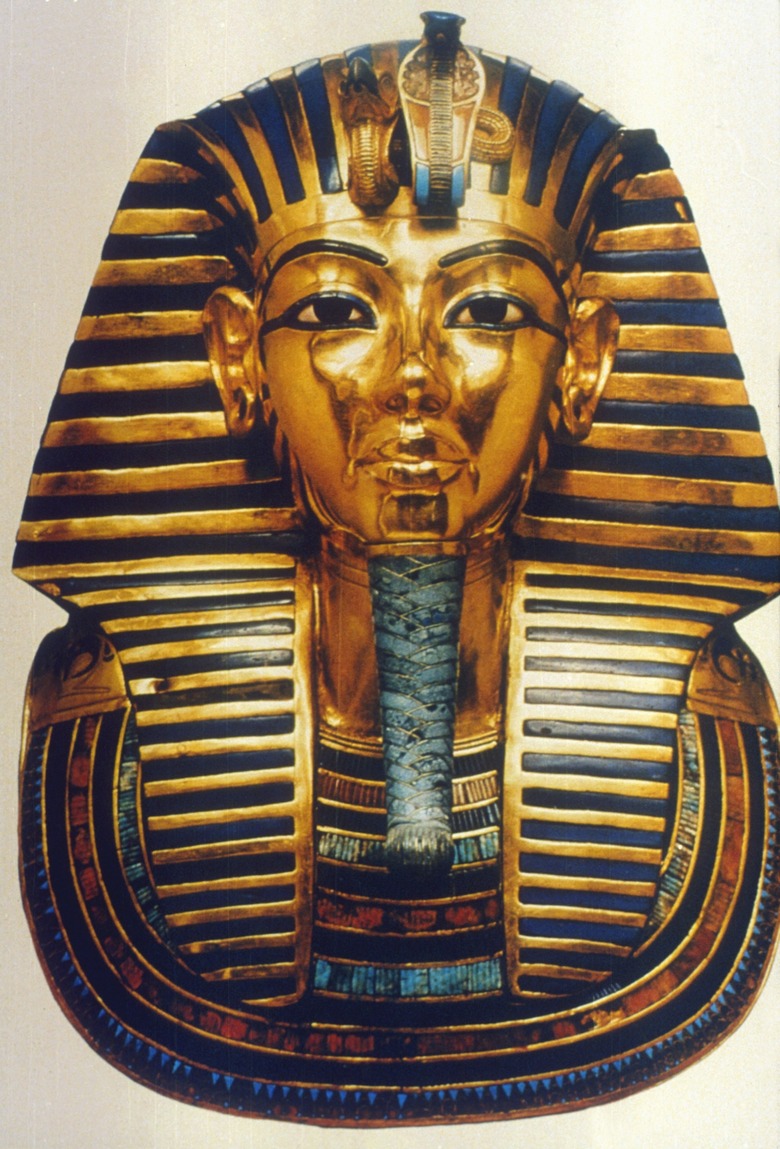Can I Clean Gold With Hydrochloric Acid?
For thousands of years, human beings have recognized the beauty of gold. The ancient Egyptians were making golden jewelry more than 5,000 years ago, and the legendary tomb of King Tutankhamen, discovered in 1922, included thousands of pounds of gold, worth hundreds of millions of dollars. Chances are that you don't have quite that much precious metal, but you will want to properly take care of what you do have.
Chemical Reactivity
Chemical Reactivity
Gold is not only pretty, it is also an extraordinarily useful substance. Scientists have exploited some of gold's properties to produce electronic devices, such as computers and cell phones. Gold is an extremely good conductor, and electricity flows through it with very little resistance. It also has a very low level of chemical reactivity. Unlike iron, for example, which readily combines with oxygen to form rust, gold can sit out, in the air or under water, unaffected. This makes cleaning it relatively easy. All you need is something that will react with most things, but not gold.
Hydrochloric Acid
Hydrochloric Acid
Hydrochloric acid is a strong acid. If you spill a concentrated solution on your skin, you will know it immediately and regret it a second later. It will react chemically with a lot of things, including your skin, but not gold. Soak a raw gold nugget in an HCl solution, using a dilution of two parts water to one part saturated HCl, in a glass jar with a stopper. Take it out once a day, scrub it with a toothbrush and rinse with water. The HCl will dissolve most of the material around the gold, such as the quartz or iron stone that typically surround a natural gold nugget, and leave the gold unharmed.
Jewelry
Jewelry
Using hydrochloric acid is a good way to clean a raw gold nugget, but it's not necessary or recommended for cleaning your finished gold jewelry. Far gentler treatments will suffice. Some detergent and a toothbrush should do the trick. Vinegar is much less powerful, and can be used to clean gold with less danger to you and any components of your jewelry that might be less chemically sturdy than the gold parts.
Aqua Regia
Aqua Regia
While hydrochloric acid, by itself, will not react with or harm gold in any way, gold and other precious, non-reactive metals can be dissolved by a mixture of hydrochloric acid and nitric acid, in a three-to-one ratio by volume. This is called aqua regia, Latin for "royal water." It is used in etching gold, as it is one of the few materials capable of dissolving it.
Cite This Article
MLA
Breslin, Andrew. "Can I Clean Gold With Hydrochloric Acid?" sciencing.com, https://www.sciencing.com/can-clean-gold-hydrochloric-acid-8743986/. 24 April 2017.
APA
Breslin, Andrew. (2017, April 24). Can I Clean Gold With Hydrochloric Acid?. sciencing.com. Retrieved from https://www.sciencing.com/can-clean-gold-hydrochloric-acid-8743986/
Chicago
Breslin, Andrew. Can I Clean Gold With Hydrochloric Acid? last modified March 24, 2022. https://www.sciencing.com/can-clean-gold-hydrochloric-acid-8743986/
